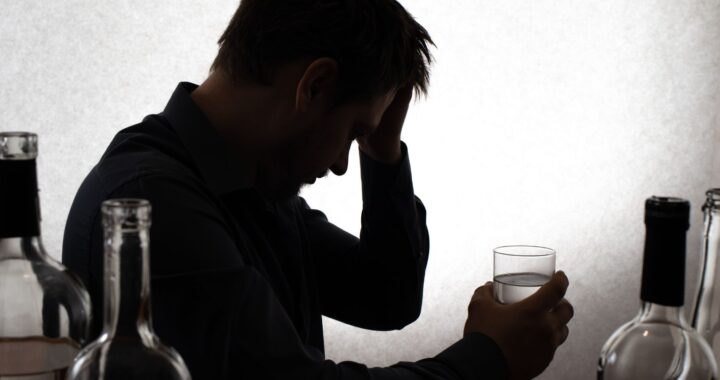How to Recognize Early Signs of Addiction and How to Seek Help

Addiction can happen to anyone, and it often starts unobtrusively enough and then grows over time. Early recognition of the signs is crucial in taking the appropriate steps toward recovery. The important thing is that addiction is not always obvious right away, and its earliest signs can, at times, be confused with normal stress or temporary changes in behavior. However, the earlier the addiction is identified, the higher the possibility of success with the treatment and recovery process over a long period. Knowing what to look for and how to react can make all the difference in not allowing that situation to get worse.
Behavioral Changes
One of the first signs of addiction relates to a visible change in behavior. Individuals may become more secluded than usual or withdraw from social groups they once loved. One may also experience a loss of interest or performance at work, school, or personal responsibilities. Addiction in most cases results in the person giving the substance or activity more importance than relationships and obligations. A person might start neglecting personal hygiene, sleep patterns, and eating habits; this is a factor that should not go unnoticed. These changes in behavior can occur in a gradual manner, and therefore, the need for observance and sensitivity to changes in the individual’s usual patterns is important.
Physical Symptoms
Another major warning system of addiction during its early stage involves physical symptoms. Symptoms may differ according to the substance abused, and some common signs may come in the form of changes in appearance, such as weight loss or gain; frequent nosebleeds; bloodshot eyes.

Tremors or shaking, speech changes, or impairment in motor performance may also be noticeable in people with alcohol or drug addiction. In addition to those, the individual is often sick, lacks energy or appears tired or rundown more often than usual. These physical alterations, in addition to behavioral symptoms, might serve as an indication that someone is losing control over their habits.
Emotional and Psychological Changes
Addiction often leads to changes in one’s emotions and psychology. Anxiety, depression, and mood swings may prevail over one who is addicted to substance use or addictive behaviors. An individual can become increasingly irritable or anxious without apparent reasons, or one can exhibit unpredictable emotions such as frequent anger or sadness. These mood swings are not always correlated with external stressors but can be directly related to the addictive behavior itself. Early addiction may also be accompanied by feelings of guilt or shame and other forms of poor mental health. Such emotional and psychological changes are significant signs that something may be amiss and needs closer scrutiny.
Risk-Taking Behavior
Addiction tends to increase risk-taking behavior, another potentially dangerous sign that a person is becoming dependent. They may start doing things they might have previously abstained from or approached cautiously, for instance, driving while intoxicated, using in unsafe environments, or with companions who could potentially escalate the behavior to be even more self-destructive.

One of the traits of addiction is risk-taking-continued pursuit of the substance or activity in spite of adverse consequences and frequently when the health or safety of the individual is seriously endangered. If someone you know behaves in a more dangerous or harmful way, that is when an intervention may be needed.
Professional Help
If at all any of the early signs are spotted, immediate help must be sought. This can be mediated through communication in a very candid and frank manner or from addiction professionals who are in this line of work. For example, different alcohol treatment centers use a number of services from detoxification to offering counseling and support in enabling the first step towards recovery. Friends and family should also be involved in this process because a support system is an integral part of overcoming addictions. The earlier the help is sought, the better the chances are for a full recovery before the addiction becomes more ingrained.
Recovery thereby begins with early recognition of the signs of addiction and addressing them as early as possible. The journey thereafter involves both the individual and his or her support system in developing healthier habits and coping strategies. Recovery is a marathon that requires commitment and patience, but with proper treatment and support, one can emerge from addiction and retrieve a healthier and fuller life. The sooner the onset of addiction is recognized, the better the intervention that needs to take place before it takes hold of a person’s life.

 Here’s Everything You Need to Know About Botox Before Your First Shot
Here’s Everything You Need to Know About Botox Before Your First Shot  Walking as a Tool for Better Mental Health
Walking as a Tool for Better Mental Health  Restoring Your Thinning Hair Line
Restoring Your Thinning Hair Line  The Role of Exercise in Recovering from Alcohol Use Disorder
The Role of Exercise in Recovering from Alcohol Use Disorder  Beauty Redefined: Exploring the Latest Trends in Skincare Treatments
Beauty Redefined: Exploring the Latest Trends in Skincare Treatments  The Blonde Spectrum: Techniques For Every Shade of Blonde
The Blonde Spectrum: Techniques For Every Shade of Blonde